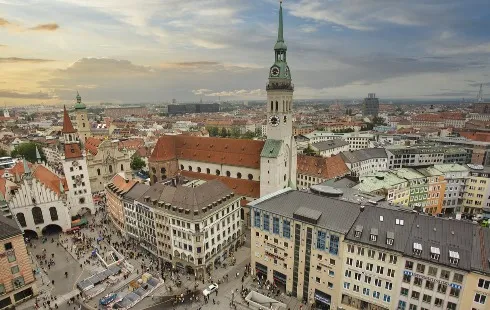
Prioritizing Food Quality Over Carb or Fat Restrictions for Heart Health
Section: Health
In a recent interview, the leader of the Free Democratic Party (FDP), Christian Lindner, firmly stated that his party will not enter into a coalition government with the Greens. Lindner emphasized that the FDP has successfully achieved a significant shift in migration policy compared to the previous administration under Angela Merkel, positioning the party towards a potential Schwarz-Gelb (Black-Yellow) coalition with the Christian Democratic Union (CDU).
Lindner's remarks come in the wake of a crucial parliamentary vote where the FDP, in alliance with the CDU, supported a more stringent migration policy. This move has raised questions about the so-called 'firewall' that was traditionally maintained against collaboration with the Alternative for Germany (AfD). In his statements, Lindner clarified that while the FDP aligned with the CDU's views on migration, it does not signify any intent to collaborate with the AfD, which he described as incompatible with the FDP's values.
He pointed out that the AfD's recent statements, which included plans to dismantle renewable energy projects, highlight the party's lack of respect for property rights and a detrimental approach to economic policy. Lindner criticized the AfD's proposals, including a withdrawal from the European Union, which he argued would lead to political isolation and economic ruin for Germany.
Furthermore, Lindner rejected claims from the Social Democratic Party (SPD) suggesting that the FDP is moving towards extremist positions. He characterized such assertions as disingenuous, insisting that the FDP remains committed to its principles while navigating the complex landscape of German politics.
As the political climate evolves, Lindner's advocacy for a Schwarz-Gelb coalition appears to be a strategic move aimed at consolidating support among centrist voters who may feel disillusioned with left-leaning parties. His vision includes a more pragmatic approach to governance, emphasizing the need for stability and continuity in German politics.
In light of recent events and the shifting political alliances, the future of coalition politics in Germany remains uncertain. Lindner's statements reflect a broader debate within the country regarding migration, economic policy, and the direction of future governments. As the FDP positions itself for upcoming elections, it remains to be seen how these developments will influence voter sentiment and party dynamics in the coming months.

Section: Health

Section: Arts

Section: Health

Section: Science

Section: News

Section: News

Section: Health Insurance

Section: Health

Section: News

Section: Arts
Health Insurance in Germany is compulsory and sometimes complicated, not to mention expensive. As an expat, you are required to navigate this landscape within weeks of arriving, so check our FAQ on PKV. For our guide on resources and access to agents who can give you a competitive quote, try our PKV Cost comparison tool.
Germany is famous for its medical expertise and extensive number of hospitals and clinics. See this comprehensive directory of hospitals and clinics across the country, complete with links to their websites, addresses, contact info, and specializations/services.
The granddaughter of Claire Zachanassian makes a return to Güllen, the impoverished hometown of her late grandmother, for a performance. Having never fully engaged with her grandmother's past, she is eager to finally discover Güllen. The sound of her last name stirs the entire town into action.



No comments yet. Be the first to comment!